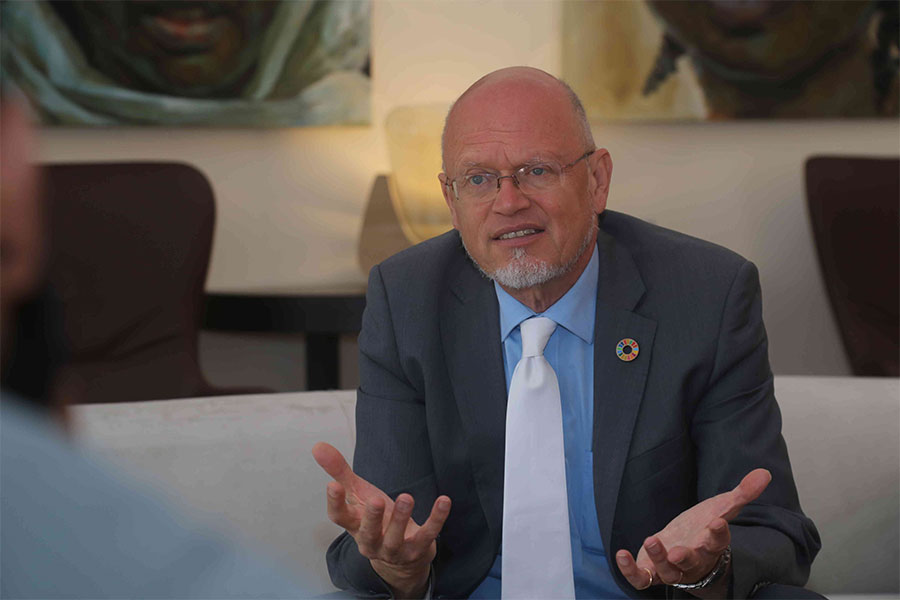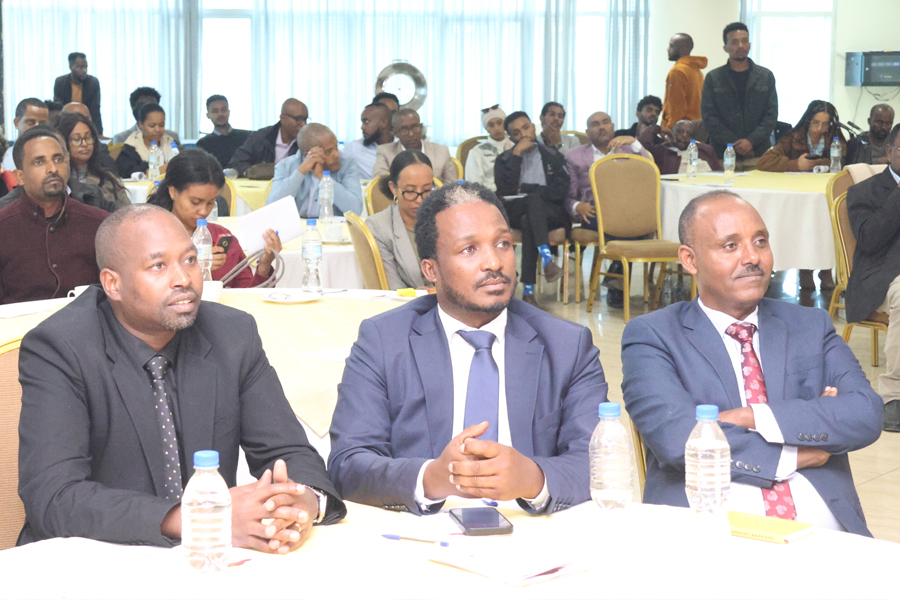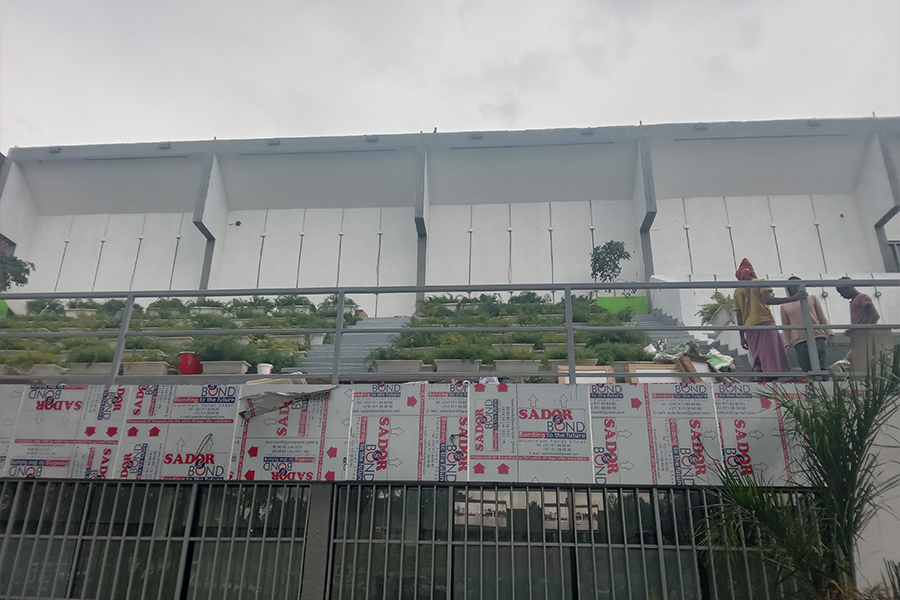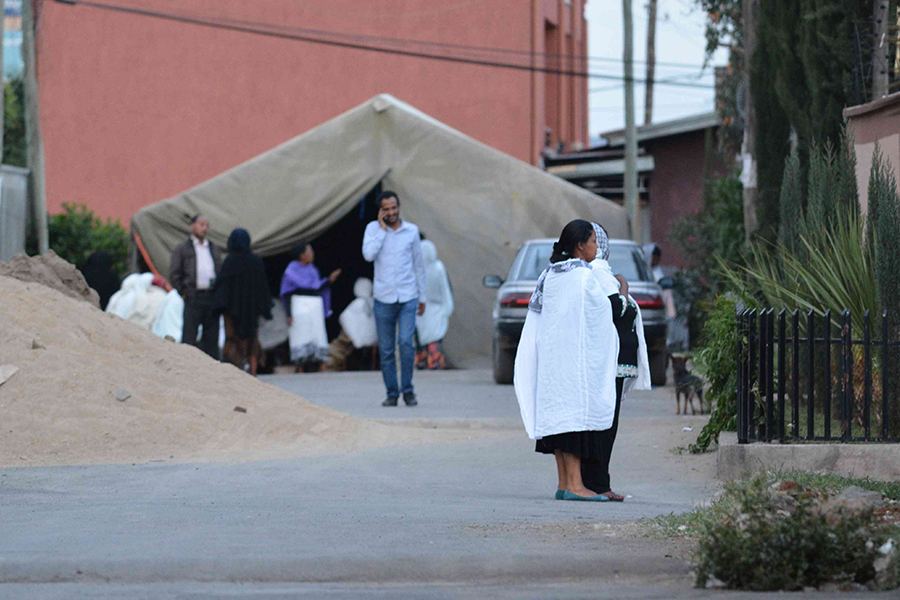
Exclusive Interviews | Apr 15,2023
In a daring alliance set against the ticking clock of impending doom, global coffee titan JDE Peet's and sustainability scout Enveritas have forged an unprecedented partnership with the Ethiopian Coffee & Tea Authority. Their mission— to map out the sprawling coffee farmlands of Ethiopia, a strategic gambit aimed at warding off the looming threat of the EU Deforestation Regulation (EUDR). With a mere 10 months left for compliance, the stakes have never been higher.
The move combines cutting-edge technology, including satellite imagery and artificial intelligence, with the raw determination of on-the-ground verification. The agreement with Enveritas leverages existing satellite databases, promising to unveil the haunting extent of coffee-related deforestation and ensure rigorous compliance with the EUDR. The regulation, ratified in June, demands irrefutable proof that the land used for producing seven key commodities bound for European markets has remained untouched by deforestation since December 2020.
This effort propels the implementation of a national action plan set into motion just three weeks ago.
Adugna Debela (PhD), head of the Authority, said proposals were submitted to the United Nations Industrial Development Organisation (UNIDO) and the International Coffee Organisation (ICO) requesting technical assistance. He underscores the critical importance of gauging the precise risk exposure to deforestation and labour violations.
"We needed the help," he told Fortune.
Enveritas, already having mapped a substantial portion of Ethiopia's coffee farmlands, now joins forces with the Authority to complete the mapping of the remaining territories in the coming months.
"It should take only a couple of months," he said.
Enveritas reports a thorough assessment of the entire country, uncovering only isolated incidents of forest conversion to coffee production since December 2020. This remote assessment, conducted with the aid of advanced satellite technology, is expected to conclude the outlined activities in the Memorandum of Understanding within a matter of weeks, according to a Company statement sent to Fortune.
"Since we operate with satellites," reads the statement, "We've been able to complete the assessment remotely."
The looming threat of the EUDR casts a shadow over Ethiopia's annual export revenue, a staggering 500 million dollars from European markets. For a nation where coffee is the lifeblood of the economy, the industry experienced a harrowing downturn in the last quarter of the previous year, with a chilling 17pc revenue decline and a heart-stopping 15.4pc drop in volume to 78,000tns.
JDE Peet's, a US-Dutch company was formed through a series of mergers, including Peet's Coffee, US food conglomerate Mondelez International and Douwe Egbert. The behemoth with annual revenues soaring beyond seven billion dollars, sources coffee from close to 30 countries worldwide. This strategic pact with Ethiopia follows similar agreements with other coffee-producing nations. Although Ethiopia was not a signatory, Brazil and Indonesia, countries which export nearly 17 billion dollars worth of commodities to EU markets annually, had led a charge involving 17 countries to have a seat in drafting the EUDR back in September.
Farmers are also racing against time. Oromia Coffee Farmers Cooperative Union is under the duress of financial strain, taking on the Herculean task of georeferencing fragmented lands— a pilot project initiated to secure the 21 million dollar export revenue, a third of which was from the EU last year.
Dejene Dadi, general manager of the Union with more than half a million farmers under its wing, points out the biting pressure of costs on mapping the fragmented land mass.
"We've submitted proposals in search of funding," he told Fortune.
The project that began on 5,000 farmers requires up to five dollars per head, which the general manager fears will put significant pressure on smallholder farmers with minuscule financial resources.
"All we need is some help," Dejene said, "traceability would help us solidify markets".
Dejene underscored the high value of European markets is unlikely to be replaced by others due to the volume of purchases and the reliability of the buyers in facilitating timely payments.
"We're happy with the steps the Authority is taking," he told Fortune.
The sentiment is echoed at the Bench Maji Coffee Farmers Cooperative Union. It exports a staggering 86pc of its 11.5 million dollar worth of coffee to European nations. The Union has begun endeavours over two years to map the holdings of 21,000 farmers.
General Manager Getahun Bekele has identified a lucrative potential to benefit from tighter control on forest degradation. He believes replicating the unique features of their coffee will be difficult for other markets, championing quality sustainable coffee at premium prices.
"It would benefit us all," he said.
Authority's ambitious 2.2 billion Br three-year national action plan is set to meet EU compliance standards, with the monumental mapping activities anticipated to reach completion by March. As Europe's focus intensifies on climate change objectives, the looming spectre of policies like the Carbon Border Adjustment Mechanism (CBAM) threatens to have far-reaching economic implications for Africa.
Abayneh Amare (PhD), a researcher in rural development, proposes tapping into carbon markets as a potential funding source for compliance requirements. He stresses the urgency of supply chains and fortifying regulatory oversight to ensure that the windfall from premium prices trickles down to uplift individual farming households.
Abayneh said Ethiopian farmers who used to practice indigenous conservation have leaned towards input-intensive production over the past two decades. This is in a bid to meet production objectives, which could be a challenge as chemicals and fertiliser both contribute to environmental problems, according to the researcher.
"They are effectively kicking the ladder," he told Fortune.
An EU spokesperson offers a reassuring nod, pledging unwavering engagement with partners to address concerns and support trade. The focus, they told Fortune, will be on empowering smallholders through cooperative tools and programs: "But without deforestation."
PUBLISHED ON
Feb 17,2024 [ VOL
24 , NO
1242]

Exclusive Interviews | Apr 15,2023

Fortune News | Aug 25,2024

Commentaries | May 31,2025

In-Picture | Sep 14,2024

Radar | May 24,2025

Fortune News | Jun 14,2020

Sponsored Contents | May 02,2023

Editorial | Dec 11,2021

Agenda | Jul 21,2024

Advertorials | May 29,2023

Dec 22 , 2024 . By TIZITA SHEWAFERAW
Charged with transforming colossal state-owned enterprises into modern and competitiv...

Aug 18 , 2024 . By AKSAH ITALO
Although predictable Yonas Zerihun's job in the ride-hailing service is not immune to...

Jul 28 , 2024 . By TIZITA SHEWAFERAW
Unhabitual, perhaps too many, Samuel Gebreyohannes, 38, used to occasionally enjoy a couple of beers at breakfast. However, he recently swit...

Jul 13 , 2024 . By AKSAH ITALO
Investors who rely on tractors, trucks, and field vehicles for commuting, transporting commodities, and f...

Jul 5 , 2025
Six years ago, Ethiopia was the darling of international liberal commentators. A year...

Jun 28 , 2025
Meseret Damtie, the assertive auditor general, has never been shy about naming names...

Jun 21 , 2025
A well-worn adage says, “Budget is not destiny, but it is direction.” Examining t...

Jun 14 , 2025
Yet again, the Horn of Africa is bracing for trouble. A region already frayed by wars...